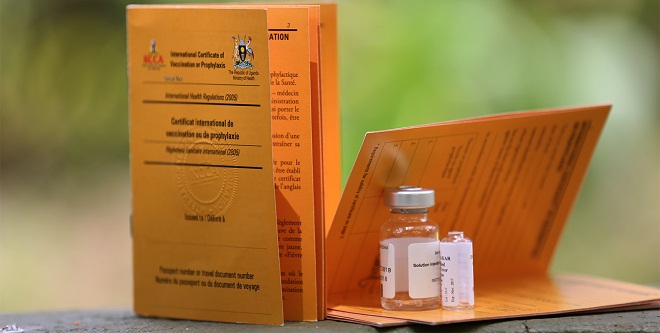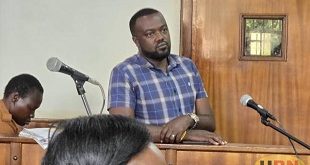
Kampala, Uganda | THE INDEPENDENT | The vaccination exercise against yellow fever in areas that recently had positive cases will start on March 9th.
Dr. Immaculate Ampaire, the Deputy Programme Manager Uganda National Expanded Programme on Immunisation (UNEPI) told Uganda Radio Network yesterday that after vaccines arrived in the country Monday evening, they have now set a date for the start of the vaccination.
The exercise that lasts a week until March 15 will start in Moyo before extending to other four districts of Maracha, Bullisa, Yumbe and Koboko. Dr. Fred Nsubuga who is coordinating this exercise says currently there’s an active outbreak in three districts that had registered eight cases by Monday.
But, he says, they resolved to include Koboko because they registered cases last year and Yumbe because of the heavy refugee presence and yet it’s in the middle of districts with active cases. While this reactive vaccination could have started earlier provided that the outbreak of the disease was confirmed in late January, Nsubuga says they have been experiencing challenges with funds disbursement to affected districts by the Ministry of Finance.
“The threshold for funds to districts per month is Shs 40million but we had asked for a waiver for these districts to get more money to fund these immunization activities. Finance had not yet approved this request,” he said.
Yellow fever, an acute viral hemorrhagic fever spread by mosquitoes remains a big threat as some countries cannot allow a Ugandan to enter their territory without proof of vaccination. Immunity to the disease remains low estimated at 4.2% at the national level and each year since 2016, the country has been recording cases of the fever with the latest being Koboko and Masaka in 2019, Mubende in 2018, Masaka in 2017 and Rukungiri and Kalangala in 2016. Yet, there is a vaccine for it.
However, as an international meeting geared towards laying strategies to eliminate yellow fever opened in Kampala yesterday, Health Minister Jane Ruth Aceng told delegates that the country has finalized plans to have vaccines included in the routine immunization schedule.
She said the application proposal by GAVI to provide the country with these vaccines are set to be submitted in May and if approved vaccination will be rolled out next year since usually it takes the vaccine’s alliance about 15 months to approve a proposal.
The meeting is being attended by delegates from 17 countries.
******
URN
 The Independent Uganda: You get the Truth we Pay the Price
The Independent Uganda: You get the Truth we Pay the Price



